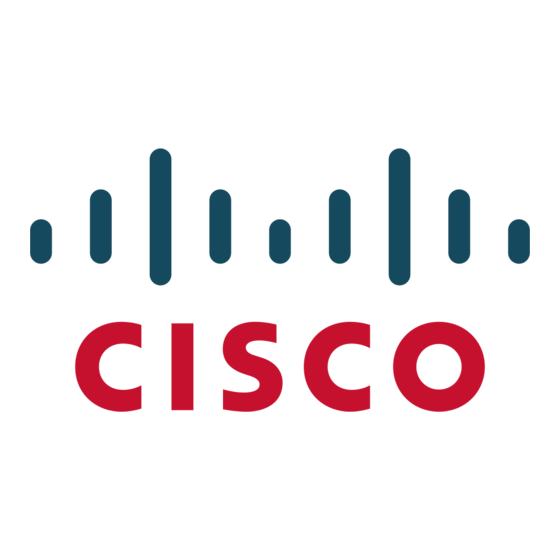Product Feature
Network
Scalability and Capacity
Single VCS capacity:
(appliance or small and
medium virtual-machine
deployments)
Single VCS capacity:
(large virtual-machine
deployments)
Clustered VCS capacity
Microsoft Lync Interworking
Capacity
System Security and Resilience
Security features
Resilience and reliability
Table 2.
Product Feature
Virtualized Application Specifications
Servers for virtual
environment
Virtual-Machine Host
Requirements
vCPU
Reserved CPU resource
Reserved RAM
© 2013 Cisco and/or its affiliates. All rights reserved. This document is Cisco Public Information.
Product Specification
● Support for capacity warnings for users and administrators
● Support for Domain Name System (DNS) addressing
● Support for IPv4 and IPv6 simultaneously
● Support for IPv4 and IPv6 translation services
● The capacity of one Cisco VCS (appliance or small and medium virtual machine) follows:
Up to 2500 registrations
◦
Up to 500 nontraversal calls
◦
Up to 100 traversal calls
◦
Up to 1000 subzones
◦
● The capacity of one Cisco VCS (large virtual machine) follows:
Up to 5000 registrations
◦
Up to 500 nontraversal calls
◦
Up to 500 traversal calls
◦
Up to 1000 subzones
◦
● Up to six VCS appliances or virtual machines can be clustered to increase capacity and provide redundancy.
● Clustering increases the maximum registrations, traversal, and nontraversal calls by up to four times.
The maximum number of calls interworked to Microsoft Lync is 100. It is highly recommended that a separate VCS
Control server is deployed for use as a dedicated Microsoft Lync gateway.
● Secure management with HTTPS, SSH, and SCP
● Secure file transfer
● Inactivity timeout
● Built-in firewall configuration rules
● Ability to lock down IP services
● Requirement for authentication on HTTP(S), SSH, and SCP
● H.235 authentication support
● Transport Layer Security (TLS) for SIP signaling
● Roles-based password-protected GUI user access
● Ability to enforce strict passwords
● Ability to disable root access over SSH
● Automated intrusion protection
● Supports delegated credential checking across a traversal zone with Cisco VCS Expressway
● Federal Information Processing Standards (FIPS) 140-2-compliant cryptographic modules
● Ability to deploy in six-redundant cluster
● Ability to share licenses across a cluster
● Ability for registrations to survive system restart
● Ability to replicate configuration for clusters
Cisco VCS Control Virtualized Application and Physical Appliance Specifications
Product Specification
● Cisco UCS B- or C- Series Servers or third-party servers that meet the minimum requirements
● VMware vSphere or vCenter server running ESXi
For full details of host requirements, refer to the Cisco TelePresence VCS Virtual Machine Deployment Guide.
Small Deployment
2 core
3600 MHz (2 x 1.8 GHz)
4 GB
Medium Deployment
(typical installation)
2 core
4800 MHz (2 x 2.4 GHz)
6 GB
Large Deployment
(for performance and scalability)
8 core
26400 MHz (8 x 3.3 GHz)
8 GB
Page 5 of 7

